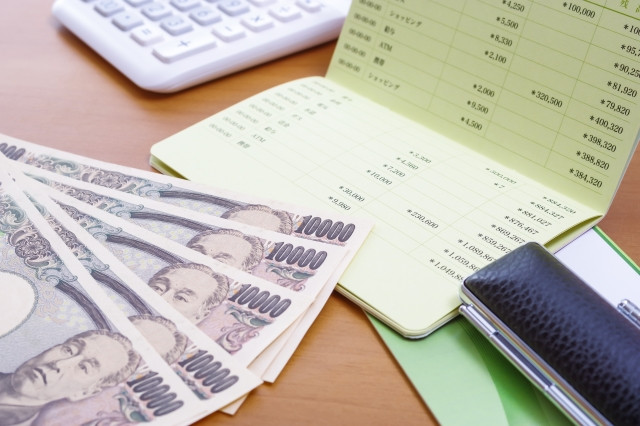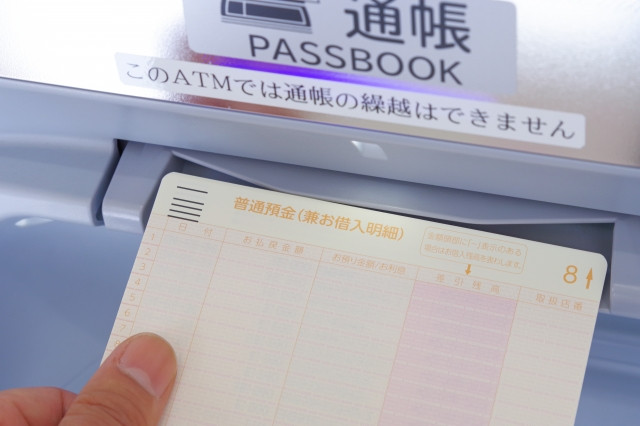Having a bank account is essential for anyone living in Japan. Whether you are an international student receiving remittance, or a worker getting paid a salary, you will need a bank account.
In this article, we explain the requirements for foreign nationals to open a bank account in Japan, the steps to opening a bank account in Japan, as well as introduce the best banks for foreigners in Japan to open a bank account.
Table of Contents
- Can foreigners open a bank account in Japan?
- What do you need to open a bank account in Japan?
- How to Open a Bank Account in Japan
- Best Banks for Foreigners in Japan
- To Close
Can foreigners open a bank account in Japan?

Foreign nationals can open a bank account in Japan if they have a certain period of stay. The bank accounts they can open include a savings account or a non-resident yen deposit account.
Foreign nationals can open a savings account with at least 6 months period of stay
Foreign nationals can open a savings account (普通口座) in a Japanese bank if they have at least 6 months period of stay. A residence card is required to open a bank account. If your period of stay is less than 3 months, you will not receive a residence card, and therefore cannot open an account.
Foreign nationals whose period of stay is less than 6 months and are not working in a Japanese office are classified as “nonresidents (非居住者)” according to the Foreign Exchange and Foreign Control Trade Law (外国為替及び外国貿易法). People who fall into the category of nonresidents cannot open savings accounts at many banks. However, some banks, such as Japan Post Bank, will allow foreign nationals to open a savings account provided their period of stay is at least 3 months.
Nonresident Yen Deposit Account can be opened if period of stay is less than 6 months
If your period of stay is between 3~6 months, you can open a “nonresident yen deposit account (非居住者円預金口座)”. Unlike an ordinary savings account, a nonresident yen deposit account has restrictions on what can be done, so check before you open one.
Below is a summary of the differences between a nonresident yen deposit account and an ordinary savings account:
-
No cash card, and cannot use ATM
-
Account transfers not allowed unless for payment of public utilities charge
-
Higher bank charges for procedures
-
Limited number of branches that allow withdrawals and deposits
The above disadvantages, which vary from bank to bank, make it more inconvenient compared to a savings account.
Writer's Pick
What do you need to open a bank account in Japan?

When a foreign national opens a bank account in Japan, he/she will require an identity card, documents confirming current address, and a personal seal. A telephone number where you can be reached is also necessary, so prepare one in advance.
Below are the documents required to open a bank account in Japan.
Identity Verification Documents
Identity verification is compulsory for anybody who wants to open a bank account. In the case of foreign nationals, a residence card or special permanent resident certificate (whichever is applicable), is required to confirm the period of stay. Some banks may also ask you to present your passport, health insurance card, employee or student ID, so bring those along too. If you have obtained a Japanese driver’s license, bring it too.
Documents to Prove Current Address
Original receipts for payment of utilities and bills like electricity, gas, water, NHK, and landline telephone are usually used to confirm current address. In the case of foreign nationals, your residence card is usually sufficient as your current residence is required to be printed on it. A copy of certificate of residence (住民票の写し) issued by the municipality can also be a document of proof, and in some cases, required by the bank.
Personal Seal
Most Japanese banks require a personal seal (印鑑 inkan) when opening an account. In many other countries, a signature is used when signing contracts, but in Japan, inkan is primarily used. Some banks allow opening a bank account without a personal seal, especially when opening an account online. There are some banks that do not require a personal seal to open account.
Personal seal usually contains a person’s surname, it can also be made in katakana or romaji. In many cases, a seal is also required when signing a lease, electricity or gas contract, so it is recommended to prepare one just in case.
How to Open a Bank Account in Japan?

Opening a bank account in Japan can be done over the counter or online. Below, we explain both ways to do so, so consider the method that suits you best.
How to Open a Bank Account Over-the-Counter
1. Go to a bank near your school or home, or a bank designated by your workplace
When opening a bank, you should go to one near your home, school, or workplace. If the bank you go to is too far from places you go to in your everyday life, they may reject your application.
If you are opening a bank account following getting a job as a full-time employee, your workplace may specify that a bank account at a specific bank, including bank branch, be made. If you have an existing bank account with the bank but not the same branch, you can still make a branch account, which means you will have 2 accounts with the same bank.
Note that some bank branches do not process overseas remittances over-the-counter. If you are planning to send money abroad over-the-counter, then find a branch that provides that service.
2. Submit Application to Open an Account and Required Documents
At the bank, fill in the application form for opening an account and submit it at the counter. Present your identity documents, current address documents, and personal seal when requested.
You will be asked to confirm your name, address, and date of birth, so practice answering these questions in Japanese. You will also be asked if you understand the terms and conditions for opening a bank account. If you cannot answer the questions and cannot understand the application documents, then the bank will decline to open your account. Therefore, if you are not confident about communicating in Japanese, bring someone who can interpret for you, or find a branch that provides English support.
Note that a 4-digit PIN is required to make a cash card. Prepare a number that is easy to remember beforehand.
3. Receive Bankbook and Cash Card

Once your account is opened, you will be issued a bankbook on the spot. In some cases, the bank may need time to process your application and check if everything is in accordance with the law. In this case, your account may be opened at a later date, and your bankbook will be sent to you later.
If you make a cash card, it will be mailed to you 7~10 days later. To accept delivery of the card, you need to show your residence card or passport to confirm your identity.
How to Open a Bank Account Online
Many banks let you open a bank account online these days. This can be done via the bank’s website or a dedicated app for opening accounts. You will need to upload photos of all the documents required. It usually takes 1~2 weeks to receive your cash card after completing the procedure.
If there is any problem with your application, the bank will give you a phone call. This may be difficult if you are not used to conversing in Japanese. If the conversation does not go well, you will be asked to visit a branch to do it over-the-counter.
Note that some banks do not allow foreign nationals to open an account online. In which case, you will need to visit a branch and do it over-the-counter.
Best Banks for Foreigners in Japan

Depending on the bank, it may be easier or harder for foreign nationals to open an account, or to transfer money abroad. Below, we have compiled a list of the best banks for foreigners in Japan because of their easier account opening process.
- Japan Post Bank (ゆうちょ銀行) : Allows people with period of stay of at least 3 months to open a savings account; online create account service that supports 16 languages.
- Mitsubishi UFJ Bank (三菱UFJ銀行) : No need personal seal to open account; one of the biggest banks in Japan with large number of ATMs which makes withdrawals and deposits easier.
- Resona Bank (りそな銀行) : No need personal seal to open account; can make overseas transfers using the app.
- Rakuten Bank (楽天銀行) : English-language website available; confirmation of identity can be done through app; fees for overseas transfers cheaper than other banks.
- Shinsei Bank (新生銀行) : English-language website available; confirmation of identity can be done through app.
- Mizuho Bank (みずほ銀行) : Interpretation services via tablet available at 10 branches including Ginza, Shibuya and Yokohama Ekimae branches.
Summary

Foreign nationals can open a savings account at a Japanese bank if they have a period of stay of at least 6 months, or 3 months for Japan Post Bank. When opening a bank account in Japan, you will need your residence card, address confirmation document (which can be a residence card), and a personal seal (some banks do not need it). The ease of opening a bank account and how easy it is to do overseas transactions varies depending on the bank.


































